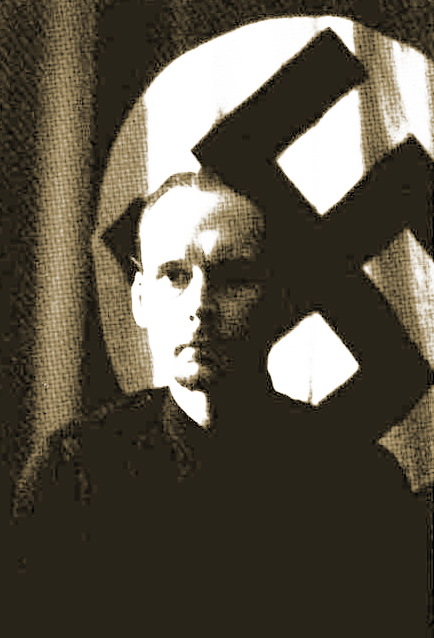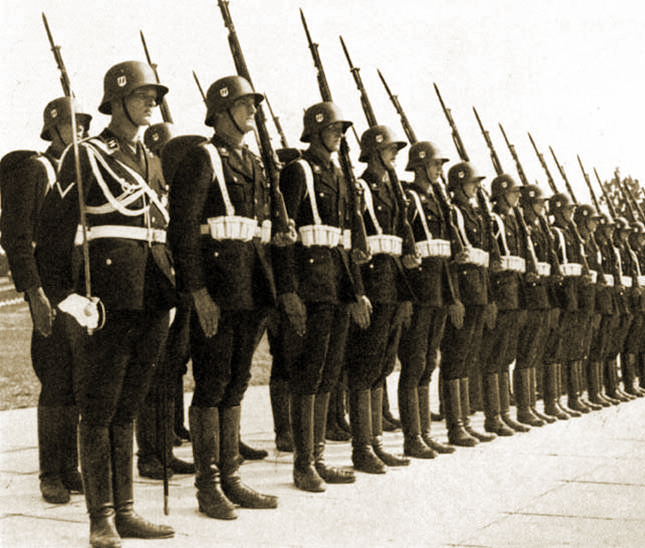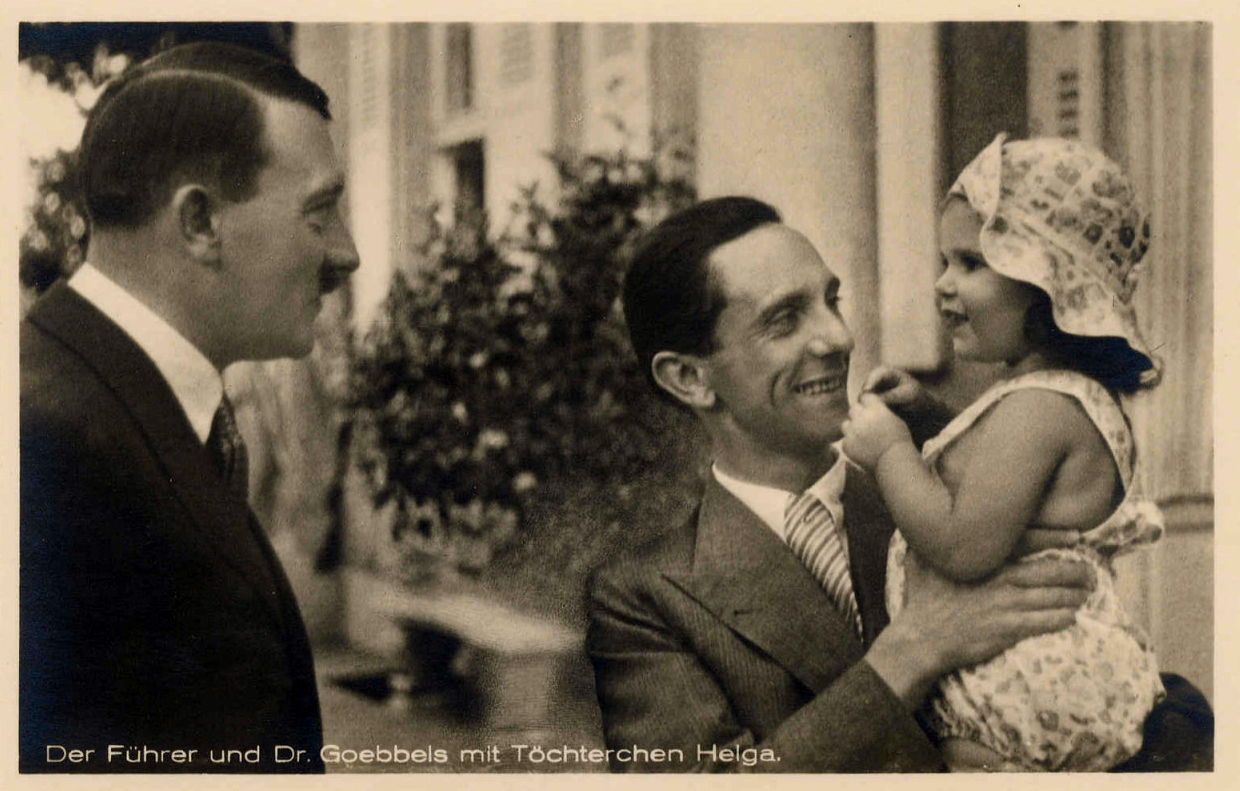The following is the introduction to the fourth part of the forthcoming 2017 edition of The Fair Race’s Darkest Hour. As in my introductory article to that compilation, “The word racism,” regular visitors to this site will recognize that I have been merging and recycling different pieces that have already been published here.
______ ______
Part IV:
Ethno-suicide: Christian ethics
Why were you so ungrateful to our
gods as to desert them for the Jews?
—Julian (addressing the Christians)
FROM THE EDITOR’S DESK:
Two ways of looking at history
Note of September 2017: I have relocated the first paragraphs of this post: here. The 2018 edition of the book will be much shorter than the below one:
The life of Albert Schweitzer (1875-1965) illustrates the phenomenon of deranged altruism, that Kevin MacDonald has called pathological altruism. Schweitzer was a New Testament scholar and a medical missionary in Africa. He received the 1952 Nobel Peace Prize for his philosophy of “Reverence for Life,” expressed in many ways but most famously in founding the Albert Schweitzer Hospital in Africa. We are greatly indebted to Schweitzer and the other Germans who started a secularized research on the New Testament texts since the 18th and 19th centuries. Personally, these Germans were of great help for me in my late twenties during my inner struggle with my father’s Catholicism. But at the same time we should note that the biography of Schweitzer illustrates what is wrong with those who abandon faith in the gospel only to become out-group altruists. Eric, a Swede who used to comment at the blogsite Gates of Vienna, commented in a July 2009 thread:
Our progressivist paradigm is based on Christian ethics. The Left is all about Christian ethics. What the left-wing is doing is not destroying Western civilization, but completing and fulfilling it: what I call “The Finish of the West.” The current order is the last and terminal phase of Western Christian civilization. Western Christian civilization is in fact the worst enemy of what I call European civilization: another reason for wanting the Western Christian civilization to go away. For the very same reason that Christian ethics abhors infanticide, it causes the population explosion in the world.
Christian ethics cannot stand the sight of little brown children dying. They must help them, or they will freak out. According to Christian ethics it is forbidden and unthinkable to think in terms of not saving every little brown child across the planet.
 But the consequences of this mindset are catastrophic, not only to us but also to them, as I have already explained. But since people are so programmed according to Christian ethics, what I’m saying does not seem to enter their heads. The thought is too unthinkable to be absorbed. It’s an utter taboo.
But the consequences of this mindset are catastrophic, not only to us but also to them, as I have already explained. But since people are so programmed according to Christian ethics, what I’m saying does not seem to enter their heads. The thought is too unthinkable to be absorbed. It’s an utter taboo.
This is derived from the deepest moral grammar of Christianity. The population explosion is not caused by liberalism, it is caused by Christianity in its most general form.
I must acknowledge that my axiological approach to Christianity and civilizational suicide originated from studying Eric’s texts carefully. The following is the crux of his views. This POV explains why, once Schweitzer researched honestly the New Testament texts to the point of abandoning his faith, he found himself irrationally compelled to help the downtrodden, like the pickaninnies that he holds in his arms above, to fulfill a form of secularized Christianity:
With Christ as part of the equation, the Christian ethics of the Gospels became balanced. Humans were seen as imperfect and it was Christ who covered for us with his self-sacrifice. In Secular Christianity each person has to be like Jesus himself [emphasis added], doing self-sacrifice, since there’s no other way to realize Christian ethics. On top of that, with the Industrial Revolution and the surplus it created in our societies, we came to the point where all the good deeds of Christian ethics could finally be executed by giving off our surplus to all the poor and weak foreign people around the world: food, Western medicine, and other aid.
We should remember that our progressivist paradigm, which is always going left, is based on Christian ethics. And Christian ethics means the inversion of values [emphasis added]. So it’s the weak that is considered good, while the strong is considered evil.
“Inversion of values” is a Nietzschean concept. The keynote of Schweitzer’s personal philosophy, which he considered to be his greatest contribution to mankind, was the idea of Reverence for Life (Ehrfurcht vor dem Leben). Like millions of “secular Christians” today, Schweitzer inverted healthy Aryan values when he questioned the historicity of the gospel narrative to elaborate an ethical foundation for his new tables. Instead of helping the crown of the evolution in Germany—for instance the nymphs that have inspired my site, The West’s Darkest Hour—, he moved to a savage part of the world to help the cloaca gentium of Africa.
Schweitzer died in 1965 at his beloved African hospital in Lambaréné, Gabon. His grave, on the banks of the Ogooué River, is marked by a cross he made himself. This, in spite of the fact that in his most famous book, The Quest of the Historical Jesus, it is clear that he had ceased to believe in the gospel stories. But the cross was appropriate: internally, Schweitzer never gave up Christian ethics, only Christian dogma. Like millions of liberals today he was a partial apostate from Christianity; his apostasy was not complete. It is my belief that only complete apostasy from Christianity and its secular offshoot will save whites from extinction. And by total I mean what Nietzsche said:
In England one must rehabilitate oneself after every little emancipation from theology by showing in a veritably awe-inspiring manner what a moral fanatic one is. That is the penance they pay there. —We others hold otherwise. When one gives up the Christian faith, one pulls the right to Christian morality out from under one’s feet.
I have quoted the retired blogger Eric above, that Lawrence Auster used to call the “Nietzschean of the North.” Presently I fully agree with Eric that what we are witnessing is nothing else than the historical demise of Christianity. The metaphor that he used explains it all: “When a star dies, in its last phase it expands into a red giant, before it shrinks into a white dwarf. Liberalism is the red giant of Christianity. And just as a red giant is devoid of its core, it expands thousand-fold while losing its substance and is about to die. The world I live in consists of Christians and liberals. It’s their world and I do not belong to them.”
But paradigms do not die: they are replaced. William Pierce for one said that Christianity and a pro-white ethos are mutually exclusive and added:
We need ethics; we need values and standards; we need a world view. And if one wants to call all of these things together a religion, then we need a religion. One might choose instead, however, to call them a philosophy of life. Whatever we call it, it must come from our own race soul; it must be an expression of the innate Aryan nature. And it must be conducive to our mission of racial progress.
The Spaniard Manu Rodríguez, with whom I have exchanged a copious correspondence, has told me that we do not need a new religion in the American sense; only to be aware of our pre-Christian cultures. We must recover such cultures, says Rodríguez, to educate our children according to the varied heritage that these cultures represent. He had in mind the Edda, the Mabinogion; Homer and Virgil—not to mention our tragedians, our poets, our philosophers. We must extract that immensely rich heritage and moral maxims.
We also need… temples!—Rodríguez told me—: enclosures for re-connection as he calls them. This is my Spanish-English translation of what Manu wrote to me: “An ever living fire in these areas will suffice. We need places where we can gather and remember our stories: readings of texts, commentaries, discussion panels and more. Something collective and social; religious and cultural centers where our people may have psychological or spiritual support, or get truthful information about our ancestors, or the incidents of our history. We need dividing the year with special celebrations related to happy or tragic milestones of our past; our own calendars of days of ‘saints’ (our heroes and those most representative). We need to retrieve the Greek, Roman, Celt, German and other names…”
That is, we need what we could not do in Christendom: having our own history because our history was usurped by the Christian clergy. We only have had a Judaic narrative inimical to the Aryan spirit. In one of his blog posts “The sublime Indo-European heritage”, Rodríguez wrote:
For hundreds of years our cultural genius was forced to speak in alien terms for our being. Think of the literature, the music or the architecture we would have had if we had not been dominated by a foreign ideology or culture; if we had remained Persians, Greeks, Germans, Slavs…
In short, for Rodríguez we need to create the Aryan community (ecclesia) which, for the above circumstances, we never had. The Aryan ecclesias need to thrive in our towns and cities. Our “priests” will be, according to my Spanish friend, not experts in theology but in history, anthropology and Indo-European linguistics. The priest of the 14 words must be skilled in the various Indo-European traditions. Such bonding in quasi-religious temples will only be for whites. The rest of the peoples or races are excluded. This won’t be a universal ideology but an ethnic one.
Rodríguez graciously allowed me to translate and publish his epistles and philosophy for the present book. On the other hand, American white nationalists seem to be living in another age. While visiting their blogsites it never ceases to surprise me the enormous quantity of Christians among them. I have already said that Pierce was the best mind that the United States has produced. I would go as far as blaming American Christianity for the fact that Pierce’s association, the National Alliance, disbanded after his death on July 23, 2002.
In sharp contrast to the prevailing paradigm in white nationalism, in a February 1989 bulletin for National Alliance members, Pierce said:
The greatest obstacle to the survival of our race is Christianity. Even with all their malice and cunning, the Jews would pose no real threat to the race were it not for their Christian collaborators. In the U.S. just as in South Africa, the Jews may be pulling a lot of strings behind the scenes, but the troops in the war against the White Race are mainly White Christians filled with religious guilt and obsessed with the need to expiate that guilt by sacrificing their own race on the altar of “equality”.
Let us never forget… that Christianity itself is an alien, hostile, racially destructive creed of Jewish origin, and in the future most of those who have fallen under its spell will continue to be our enemies and the enemies of our race.
Apparently, those Christian sympathizers who inherited the National Alliance censured the above memo, which Pierce wrote twenty-seven years ago. In this section we will see how, more than seventy years ago, Adolf Hitler also showed far more enlightened views about Christianity than American white nationalists today.
David Irving, the famed historian of the Third Reich, wrote:
The Table Talk’s content is more important in my view than Hitler’s Mein Kampf, and possibly even more than his Zweites Buch (1928). It is unadulterated Hitler. He expatiates on virtually every subject under the sun, while his generals and private staff sit patiently and listen, or pretend to listen, to the monologues.
Hitler’s talks were transcribed from 1941 to 1944. His remarks were recorded by Heinrich Heim, Henry Picker and Martin Bormann in shorthand. The book has been translated to English and the Ostara Publications edition should be read to understand the historical Hitler in contrast to the fantastic Hitler of the media. In this section I will include Hitler’s table talks about Christianity; the first one taken from what the Führer said in a night of July of 1941.
I will also include some texts by a commenter who posted under the penname of Jack Frost. I find hilarious that at the white nationalist webzine The Occidental Observer other commenters still believe that the US started unpolluted. Jack Frost rubs salt into their wounds. The fact is that the principal author of the Declaration of Independence and the third President of the United States violated, or allowed among one of the male members of his family to violate, our First Commandment: thou shalt not mix your blood with non-whites, let alone a nigger. Replying to his angry critics, Frost said: “The fact is that the Jefferson Y chromosome entered the Hemings line [a Negro family], and it is still true that it came either from Jefferson himself or one of his male relatives. In the latter case, either he knew his slave was being used sexually, which makes him a pimp, or he didn’t know, which makes him a fool. The Hemings case was not unusual.”
Most American blacks today have higher IQs than African negroes precisely because such happenings among slave owners were not unusual. What infuriates me the most about miscegenation is that the comparatively smart blacks and mulattoes we see on TV have been using their Anglo-Saxon genes to subvert what remains of Anglo-Saxon culture. This was a gift of compassionate Christians who did not castrate the slave negroes while arriving into the shores of the New World.
Young Americans who are starting to question the worldview of the Founding Fathers are realizing that men are not created equal, nor are women equal to men; that these beliefs are religious beliefs, and that society is just as religious as ever it was—I am quoting them—with an official state religion of progressivism: an evil religion. I would go as far as claim that egalitarianism, equality, universalism, the brotherhood of man, the purported inexistence of races and its corollary, non-discrimination as the central value constitute the faith of the worst generation ever since prehistory!
Genuine post-Christians do not propose that the West went wrong forty or fifty years ago, or even two-hundred years ago after the French Revolution; but millennia ago with the debasement of the Aryan gene pool among the Roman citizenship and the eventual destruction of the hard ethos of the classic world. Christianity introduced universalism and the Byzantine Empire, originated by the first Christian Emperor, soon became a mongrel empire. A thousand years later the remaining whites had a choice to revaluate Christian values after the Renaissance, but the Reformation did the exact opposite: it brought the monkey of the Old Testament onto the whites’ backs (cf. Nietzsche’s text in this section). The Enlightenment was dangerously optimistic about human nature and the State, another “good news religion, telling us what we wish to hear, but about this world instead of the next.” Furthermore, the Enlightenment does not actually represent a clean break from our ancestors’ religion.
There are two ways of looking at western history. The accepted view is that Christianity reached its peak in the times of St Francis of Assisi and St Thomas Aquinas in the thirteenth century. This is only true if our glance is purely dogmatic (Aquinas), not axiologic (St Francis). The novel approach is that Christianity did not decay; it mutated like a virus for the white mind. To put it succinctly, the so-called Enlightenment and liberalism are but Secular Christianity. From the axiological viewpoint, Christianity, a red giant star that is about to die, that fateful experiment that started with Constantine, has reached its peak in our twenty-first century. Essays by Revilo Oliver, Manu Rodríguez and Tom Sunic explaining this claim will be included in this section.
This section also reproduces translated excerpts of the general introduction of Karlheinz Deschner’s Kriminalgeschichte des Christentums (Criminal History of Christianity). I must note that Deschner, who died when I was editing this book, was a liberal and probably would have disapproved my inclusion of his translated text in the present collection. Hadn’t Britain declared war to Germany in the last century we would have now thorough German studies on the criminal history of Judaism and Christianity not from the pen of liberals like Deschner, but from National Socialists. The point of including an abridgement of Deschner’s introduction to his incredibly erudite, ten-volume work, is that most white nationalist Christians ignore the history of the Church. Finally, I include Nietzsche’s last pages of his book The Antichrist and a post by a well-known commenter in nationalist forums, Franklin Ryckaert, asking if Christianity is redeemable.
The next article reproduces excerpts from the remains of Against the Galileans by Julian the Apostate, Roman Emperor from 361 to 363 C.E. Remains I say, because the Imperial Church did not even respect the writings of one of their emperors if he happened to dismiss Christianity. Julian only reigned twenty months. In 364 his friend Libanius stated that Julian had been assassinated by a Christian.




